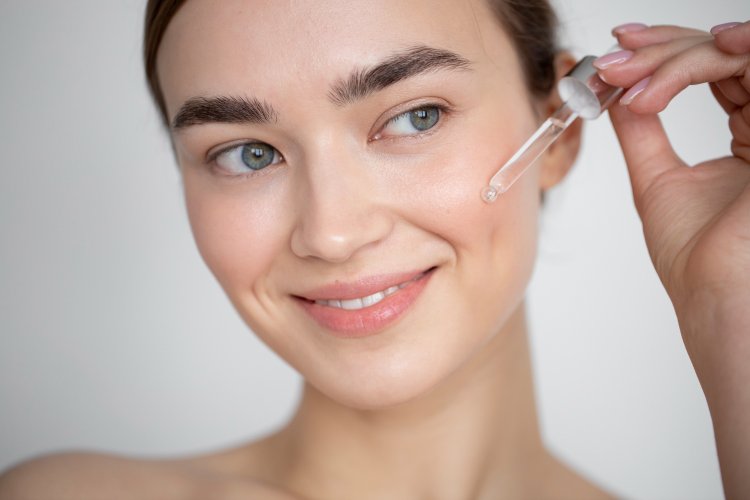A Fresh Start for Your Skin: Exploring the Benefits of Glycolic Acid
Glycolic acid is an organic acid primarily used in skincare and peeling procedures due to its exfoliating effect on the skin, making it one of the most commonly preferred acids for skin renewal and rejuvenation. This organic acid belongs to the alpha hydroxy acid (AHA) family and is derived from plant extracts such as sugarcane and sugar beet.

What Is Glycolic Acid and What Does It Do?
Glycolic acid, used in skincare and peeling procedures, is most commonly applied to the facial area to even out skin tone, reduce the effects of wrinkles, and moisturize the skin. The application of glycolic acid to the face results in the immediate observation of brightness and vitality due to the removal of dead cells.
In cosmetic care products...
Glycolic acid is utilized as a component to trigger collagen production in the skin and support its ability to retain moisture. Therefore, this organic acid is commonly used in various aesthetic procedures beyond peeling.
Can AHA and BHA Acids Be Used Together?
Products containing alpha hydroxy acid (AHA) and those containing beta hydroxy acid (BHA) should not be used together. These two different acidic components can cause abrasion and potential infection on the skin. Therefore, for the sake of skin health, these two organic acids, used for different purposes, should be applied with a certain time gap between applications.
What Are the Benefits of Glycolic Acid for the Skin?
When applied to the face or any other area of the skin, glycolic acid offers various benefits. Through the use of tonics or serums at home or through peeling procedures, glycolic acid not only provides an anti-aging effect but also optimally supports skin health.
What Is Glycolic Acid Peeling (Chemical Peeling) and What Does It Do?
Chemical peeling, generally conducted in hospital or clinic settings under expert supervision, is a procedure commonly applied with glycolic acid solution. After the application of the chemical acid solution, the skin is left to peel for a certain period, typically 5 to 10 minutes. Once the solution achieves the desired effect, the upper layer of the skin containing dead cells is peeled off.
How Is Glycolic Acid Applied at Home?
Glycolic acid-containing skincare products such as serums or tonics can be applied at home to benefit from the advantages of this organic acid. Before applying serums or tonics, it's essential to evaluate the suitability of cosmetic products for the skin type and avoid procedures that are not suitable for the skin type.
Where Can Glycolic Acid (Serum, Tonic, or Cream) Be Applied?
With necessary protective measures in place, glycolic acid skincare application can be applied to various parts of the body. The areas where it can be applied include:
- Face (care should be taken when applying around the eyes)
- Neck, chin, and chest (décolleté area)
- Hands and areas with spots and wrinkles
- Legs, feet
Where Can Glycolic Acid Be Found in Foods?
Although primarily used in solution or serum form in cosmetic applications, glycolic acid components can also be found in some plants and foods. However, consuming foods containing these acid properties may not provide effects as pronounced as direct skin applications.
What Are the Side Effects of Glycolic Acid Applied to the Skin?
While glycolic acid is highly effective and healthy in skincare, it may cause side effects in some individuals. Side effects resulting from incorrect applications, the use of skincare products unsuitable for skin type, or lack of hygienic measures can adversely affect skin health.
#GlycolicAcid #SkincareAcids #ChemicalPeeling #AntiAgingSkincare #CollagenProduction #SkinRejuvenation #AcneTreatment #SkinExfoliation
Disclaimer:
The information provided in this article is for educational purposes only and should not be considered medical advice. If you have any health concerns or are experiencing symptoms, it is important to consult with a healthcare professional, such as a doctor or clinic, for proper diagnosis and treatment. Always seek the advice of your doctor or other qualified health provider with any questions you may have regarding a medical condition. Do not disregard professional medical advice or delay in seeking it because of something you have read in this article.
What's Your Reaction?





















